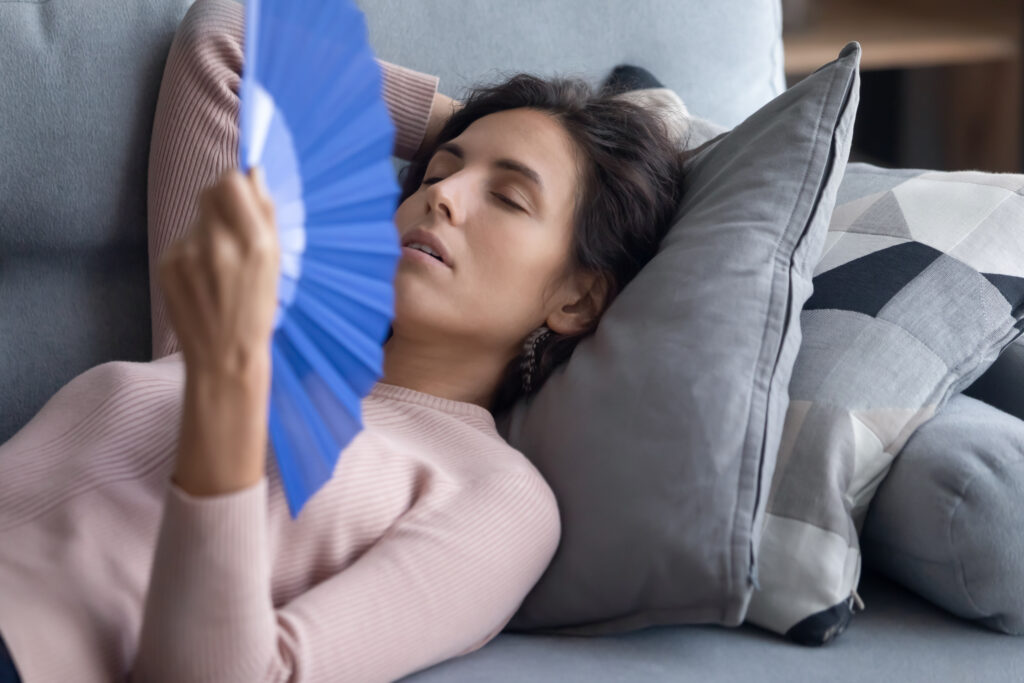
As the temperature rises during the summer months, getting a good night’s sleep can become more challenging. Hot and humid conditions can make it difficult to fall asleep and stay asleep, leading to restless nights and groggy mornings. Despite these obstacles, maintaining quality sleep is crucial for overall health and well-being. From regulating mood to boosting immune function, adequate rest is a non-negotiable aspect of a healthy lifestyle. In this blog, we will explore practical tips and strategies to help you beat the heat and achieve restful sleep even on the warmest summer nights.
High temperatures can significantly disrupt sleep patterns by leading to increased wakefulness and reduced rapid eye movement (REM) sleep, which is crucial for restorative rest. When the body struggles to cool down, it can prevent you from falling into the deeper stages of sleep. Additionally, high humidity levels exacerbate this problem by making it harder for sweat to evaporate, inhibiting the body’s natural cooling process and leading to discomfort. These conditions can also contribute to heat-related sleep disorders, such as insomnia, where staying cool becomes a nightly battle. Understanding these factors is essential in developing strategies to mitigate their impact on your sleep during the hotter months.
One of the simplest yet most effective ways to maintain a comfortable sleeping environment during summer is to manage temperature control within your bedroom. By using fans and air conditioning effectively, you can create a cool, soothing atmosphere that promotes better sleep. During the day, keeping windows and curtains closed helps to block out heat and sunlight, preventing the room from getting excessively warm. Another critical aspect is your bedding choices. Opt for light, breathable fabrics like cotton or linen that allow air circulation and wick away moisture, keeping you cool and dry throughout the night. Consider investing in cooling pillows and mattresses designed to dissipate heat and provide a refreshing sleep surface. These small adjustments can make a significant difference in your ability to sleep comfortably despite the sweltering summer heat.
Establishing a pre-sleep routine tailored to the summer heat can greatly enhance your ability to fall and stay asleep. Hydration is crucial in hot weather, but it’s important to strike a balance to avoid frequent trips to the bathroom during the night. Drinking water throughout the day helps maintain hydration, but try to limit fluid intake an hour before bed. Cool showers are another effective strategy to lower your body temperature before sleep. A refreshing shower can wash away the day’s heat and help signal to your body that it is time to relax and wind down. Additionally, limiting heat-producing activities in the hours leading up to bedtime can make a significant difference. Heavy exercise and extended use of electronic devices, which emit heat and blue light, can elevate your body temperature and stimulate your mind, making it harder to drift off. By incorporating these adjustments into your pre-sleep routine, you can create a more conducive environment for restful sleep despite the summer heat.
Creating an optimal sleeping environment is crucial for a cool and comfortable night’s sleep during the summer. Start by arranging your bedroom to maximize air circulation, ensuring that fresh air can flow freely and prevent heat from getting trapped. This can involve strategic placement of fans or cooling devices to direct airflow across the room. Additionally, removing clutter that can retain heat, such as heavy drapes, excessive furniture, or stacks of unused items, helps in keeping the space cooler. Another essential consideration is airflow creation. Positioning fans in windows or doorways can enhance cross-ventilation, drawing in cooler night air and pushing out warm air. Such adjustments to your sleeping environment can significantly improve your sleep quality by maintaining a cooler, more comfortable atmosphere conducive to sleep during the sweltering summer months.
Making lifestyle adjustments can further enhance your sleep quality during the summer months. Dietary changes play a significant role; incorporating cooling foods like cucumbers, melons, and leafy greens can help regulate your body temperature. Avoiding heavy and spicy meals before bed is crucial, as these can increase body heat and cause discomfort, making it harder to fall asleep. By paying attention to what you eat, you can create a more favorable sleeping environment that will help you stay cool and comfortable throughout the night.
As the summer heat rises, ensuring a good night’s sleep can present a unique set of challenges. However, by implementing these practical tips and strategies, such as managing bedroom temperature, adjusting your pre-sleep routine, optimizing your sleeping environment, and making mindful lifestyle adjustments, you can create a more comfortable and conducive atmosphere for rest. Remember, quality sleep is integral to your overall health and well-being, so it’s worth experimenting with different approaches to find what works best for you. Stay cool, sleep well, and embrace the joys of summer without sacrificing your rest.


